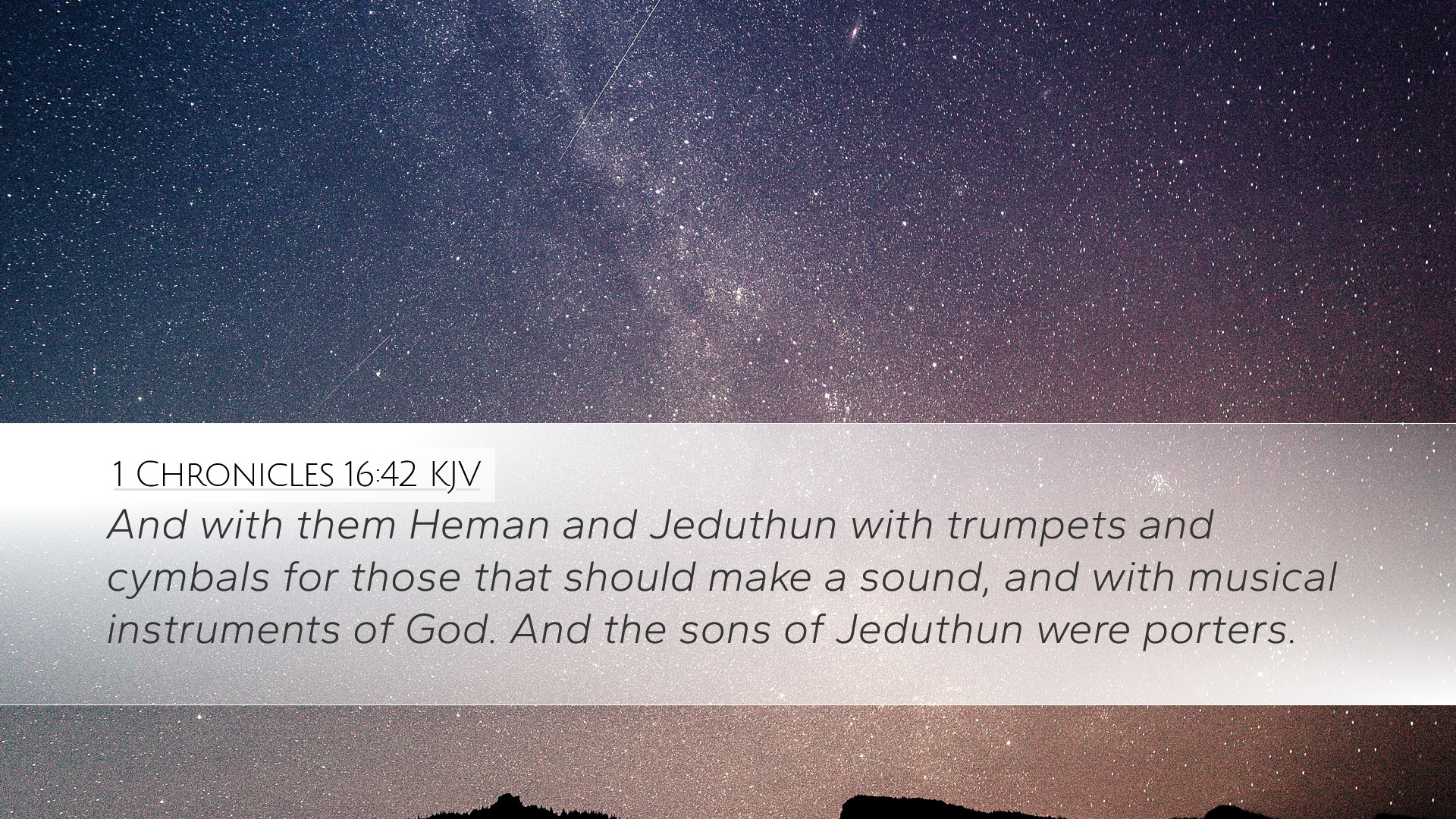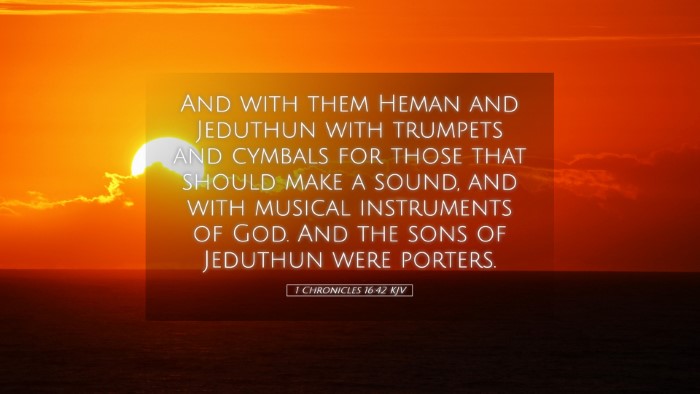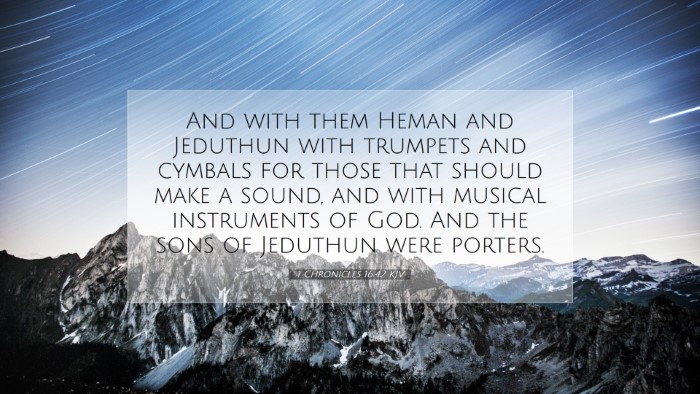Commentary on 1 Chronicles 16:42
Verse Context: 1 Chronicles 16:42 states: "And with them Heman and Jeduthun and the rest that were chosen, who were expressed by name, to give thanks to the LORD, because His mercy endureth forever." This verse captures a significant moment in the history of Israel, correlating worship, leadership, and the enduring mercy of God.
Analysis and Commentary
Historical Context
This verse occurs during a time of significant national worship led by King David, as the Ark of the Covenant was brought to the city of David. The book of Chronicles emphasizes the importance of proper worship and the roles of the Levitical priests. David organizes the people for the worship of God, which includes the appointment of specific musicians and leaders like Heman and Jeduthun.
Role of Heman and Jeduthun
Heman and Jeduthun were key figures in the Levitical order, noted for their musical abilities and prophetic gifts. According to Matthew Henry, they exemplified the integration of worship and spiritual leadership. Their skills in music were not merely for entertainment but served the purpose of leading the congregation into heartfelt worship, expressing gratitude to God.
Albert Barnes elaborates that both men were appointed specifically "to give thanks" which underscores their role in not only praising God but also teaching the people to acknowledge His goodness. By identifying their names, it emphasizes that worship leaders were recognized and had a designated role in the sacred assembly.
Thematic Significance of Thanksgiving
The directive to give thanks, as highlighted in this verse, connects to the broader theme of gratitude in the Scriptures. Adam Clarke remarks on the importance of thanksgiving, emphasizing that recognizing God's mercy is fundamental to a vibrant spiritual life. This reflects the attitude that worship should be rooted in acknowledgment of God’s continual mercies.
The phrase "His mercy endureth forever" is a liturgical refrain throughout the Psalms and undergirds the community’s worship practice. This reiteration serves as a reminder of the covenant love of God (hesed) which characterizes His relationship with Israel.
Mercy in Context
The concept of mercy is pivotal, as the enduring nature of God's mercies shapes the community’s identity. Matthew Henry reflects on how understanding God’s mercy compels the faithful to respond in worship and obedience. This enduring mercy is not only a reminder of God's forgiveness but also His unwavering support and faithfulness to His people.
This verse encapsulates the reality that despite Israel's failures, God's mercy remains steadfast. Albert Barnes comments on the covenantal promise and how worship serves as an expression of the community's recognition of this divine truth.
Practical Application for Today’s Church
For pastors, students, and theologians, this verse presents a model for worship that emphasizes leadership, community, and an attitude of gratitude towards God. Worship should reflect the acknowledgment of God’s enduring mercy, motivating believers to live out their faith in light of His grace.
Moreover, the roles of worship leaders today can be drawn from figures like Heman and Jeduthun, where the aim is to facilitate worship that directs the hearts of the congregation toward recognizing and thanking God for His goodness. The church is called to cultivate a spirit of thanksgiving, creating gatherings that are centered around praising God for His mercy.
Conclusion
In summary, 1 Chronicles 16:42 is rich with implications for understanding worship, leadership, and the nature of God’s mercy. A concerted effort to emphasize these areas can significantly enhance the worship practice within today’s church. It challenges believers to recognize and express gratitude for the ever-present mercy of God, fostering a culture of thankful worship. The insights derived from historical commentaries provide both depth and clarity in approaching worship as a vital aspect of spiritual life.


